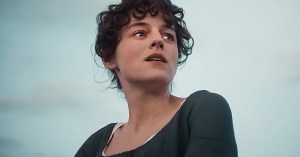Interview: David Cronenberg on Eastern Promises – UK Spin!
The veteran director sits down with Rotten Tomatoes UK to talk his latest project.
 Canadian-born David Cronenberg made his name with a series of brilliant ‘body horror’ movies including Rabid, Shivers and The Fly. His last film was the violently brilliant A History of Violence for which he, and his star Viggo Mortensen, received rave reviews. The pair re-teams this week for Eastern Promises, an equally violent but no less brilliant tale of Russian mobsters in contemporary London.
Canadian-born David Cronenberg made his name with a series of brilliant ‘body horror’ movies including Rabid, Shivers and The Fly. His last film was the violently brilliant A History of Violence for which he, and his star Viggo Mortensen, received rave reviews. The pair re-teams this week for Eastern Promises, an equally violent but no less brilliant tale of Russian mobsters in contemporary London.
How did you end up making a film about Russian gangsters in London?
David Cronenberg: Well it all has to do with the script. Wonderful characters, wonderful dialogue, an intriguing narrative, so that’s what really was what brought me to into it. I mean I never wanted to do a movie about the Russian mob in London but once I read his script then I did want to. It’s obvious.
So where did you go from there? Did you work on the script?
DC: Oh yes. It was a first draft and it had kind of languished at BBC Films for some time. I think [Stephen Knight] actually wrote it before Dirty Pretty Things that he did for Stephen Frears, but that got made first. And as it is with a first draft, it can often go off in five different directions, but I think he was really eager to get back to it and have a chance to have a go at it again with someone who had an objective opinion. We made quite a few changes.
Was it easy to research the material or is that world kind of a closed shop?
DC: No not at all, I mean, people are eager to talk about their lives, you know? In this case it didn’t seem to be enclosed at all. Not just in terms of the books that we read and the documentaries we looked at and so on, but we also had a crew of one hundred and fifty people who were all doing research on their own levels. The costume designer will be trying to find out what kind of shoes these people would wear and whoever is designing the restaurant will want to know what’s on the walls and what coffee tables cost so there’s a lot of details and for that they would go into the Russian community here and would go to the Russian churches, go to the community centres, wherever they could find people to talk to about those things. There was no resistance to it, I think people were pretty fascinated that we were doing a movie about Russians in London and were pretty eager to see that we got it right, in fact.

It was kind of nice to see different London locations onscreen. Was that simply because the script demanded it or did you want to shoot in those areas?
DC: Yeah I think it was because of Steve Knight’s own sensibility and it came naturally with the script. If he had been a more conventional writer and the script had taken place in more conventional places then it might not have been as interesting a script for me but it all sort of went together. But he was interested in delving into these relatively unknown aspects of London.
I’d like ask you a little bit about the cast as well. Were you initially hesitant about casting Viggo Mortensen having just made a film with him as it would make comparisons between A History of Violence and Eastern Promises inevitable?
DC: No, I completely forget about that. I mean, I just don’t worry about that at all. In many ways you can paralyse yourself as a filmmaker worrying about what people’s expectations are and what they expect from you. I loved working with Viggo so I was very eager to work with him again, that was a positive. And the fact that it was another mobster movie was totally by circumstance. There were quite a few other possible film projects that kept floating by and I might well have done one of them if they had come together for various reasons and then we would be talking about that instead. So I wasn’t really worried about A History of Violence.
If I felt that I was doing the same thing over again then yes that would be boring but creatively this was so different when you think of it. History is all about America, all the characters are American, its small town and rural America. A lot of it takes place in the sunshine. This is a big city; it’s all Eastern Europeans, no Americans in the whole movie, more like a film noir because it’s night in the city, so creatively completely different. And for Viggo too, I mean imagine the character, it’s completely different.
So do you think it’s just because it’s you directing and him starring that people are talking about them as companion pieces?
DC: I can see analytically that there are comparisons to be made and quite nice ones. They would probably make a really interesting double bill. But creatively thinking about History of Violence wouldn’t have helped, it’s just so different visually and in every other way – even the soundtrack and the accents are completely different. It’s quite legitimate to compare them but not part of the creative process for us when making the movie.
Another way that the films seem similar is in terms of the reality of the fight scenes.
DC: Well that’s interesting. I was going to ask you a question about that but I won’t.
You can if you want!
DC: Well no I was just thinking, because if it’s something like the Bourne movies, they take a different approach to violence. It’s far more impressionistic, the cutting is very quick, you don’t really see what’s going on and the body count is much higher in those movies but the emotional impact is much less because you don’t have any investment in those characters usually. So it’s not really a question.

That’s fine! So what are you up to next?
DC: I’m doing an opera of the Fly.
Where is that going to be?
DC: It’s going to premiere in Paris in July ’08 and then it will go to LA for the LA Company as it’s a co-production.
And how is that going?
DC: It’s going well, I mean I spent five days in Paris just a couple of weeks ago, for the first time directing singers and that was very interesting – asking them sort of naive questions like can you sing while you are hanging upside down? Because I don’t know! But it’s been interesting.
And film-wise, do you think you’ll ever return to the horror genre?
DC: It’s quite possible I’ve never ruled that out. ExistenZ was only three movies ago. It’s just a question of something that is really striking and unique and challenging. I wouldn’t rule it out at all.






